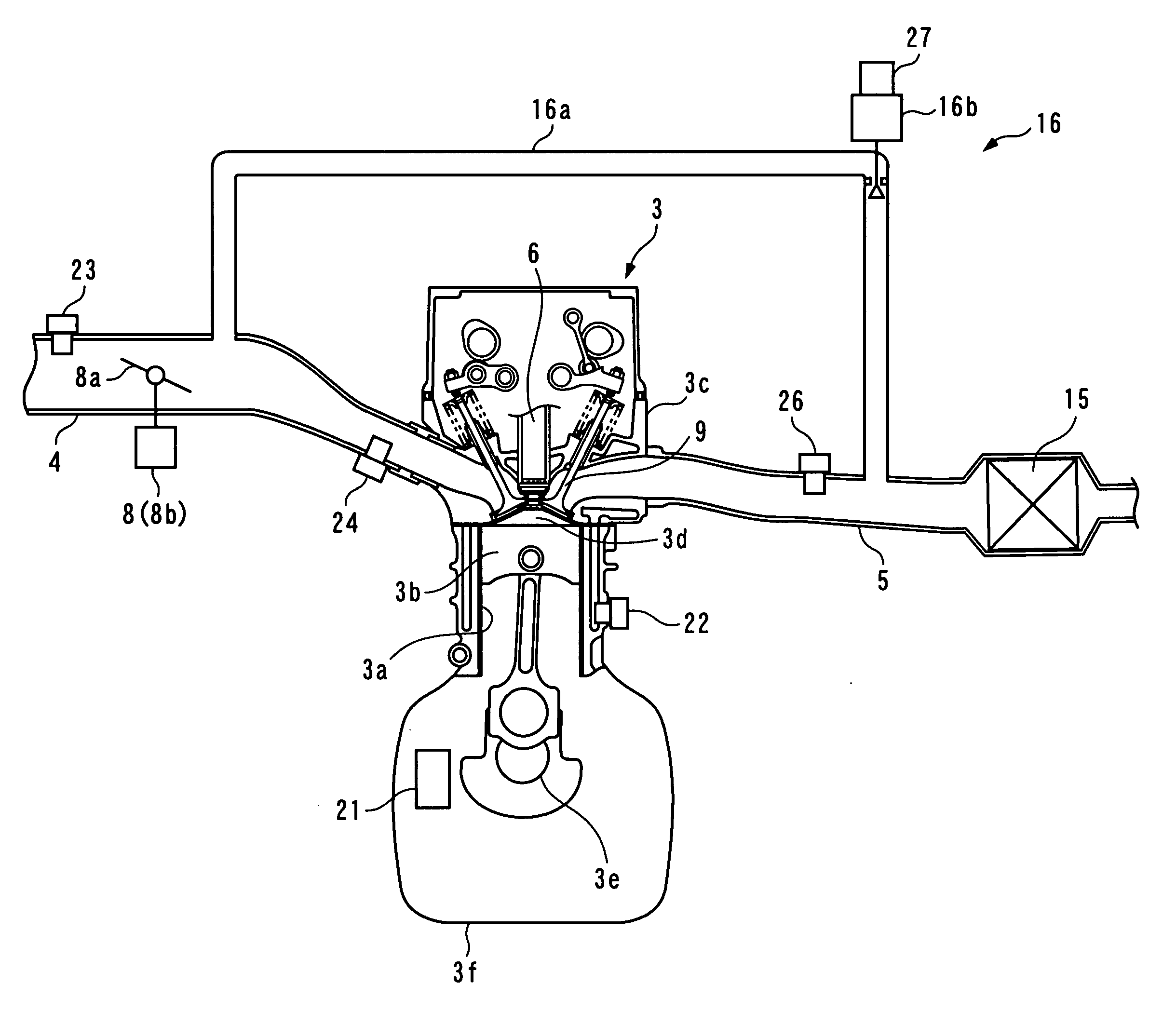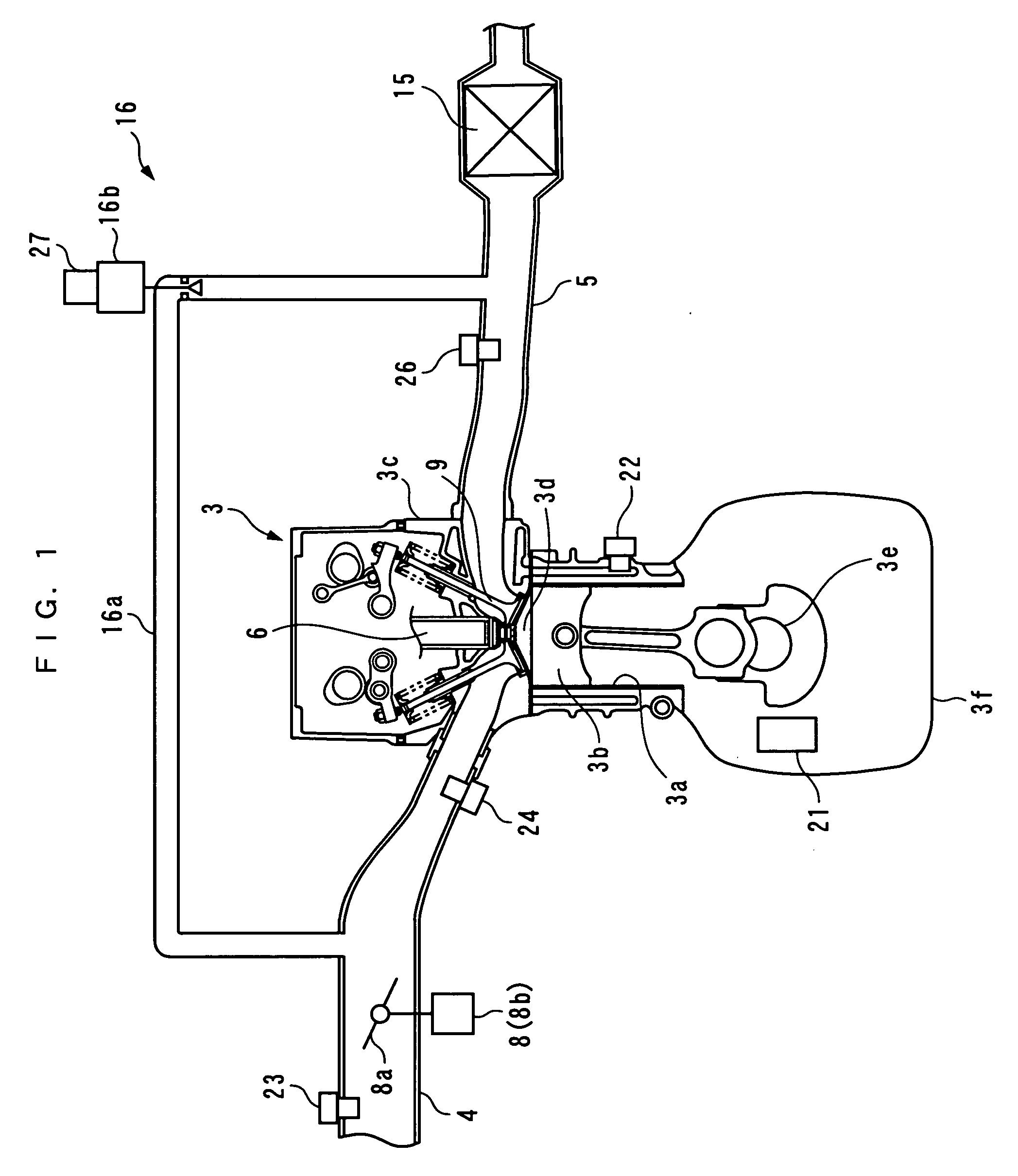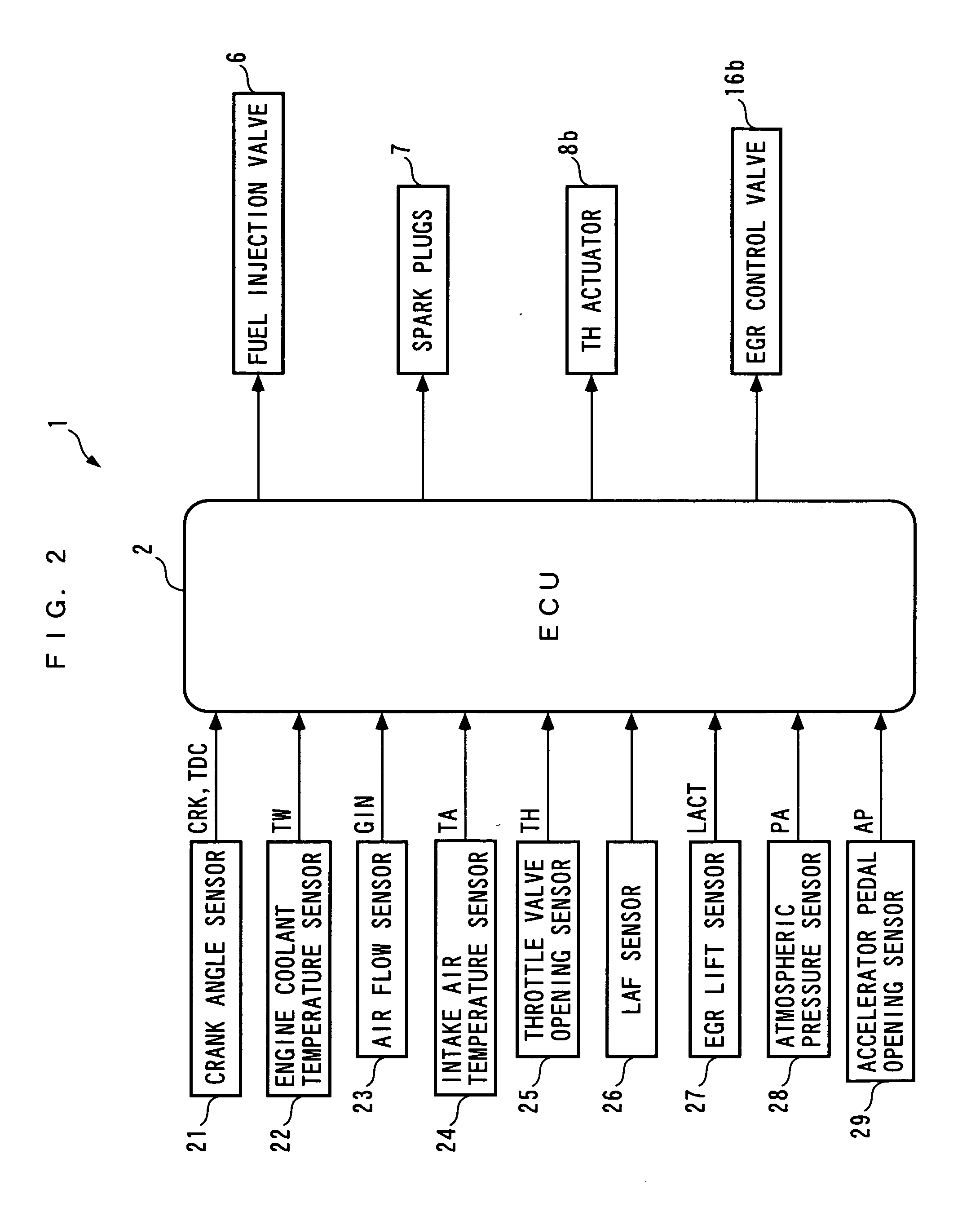Control system for internal combustion engine
a control system and internal combustion engine technology, applied in the direction of electrical control, process and machine control, instruments, etc., can solve the problems of affecting the efficiency of the engine, and the amount of fuel injected for the engine power output sometimes becomes too small or too large with respect to the intake air amount at the time, so as to improve the fuel economy and drivability.
- Summary
- Abstract
- Description
- Claims
- Application Information
AI Technical Summary
Benefits of technology
Problems solved by technology
Method used
Image
Examples
Embodiment Construction
[0037] The present invention will now be described in detail with reference to the drawings showing a preferred embodiment thereof. Referring first to FIG. 1, there is schematically shown an internal combustion engine to which is applied a control system according to an embodiment of the present invention. The internal combustion engine (hereinafter simply referred to as “the engine”) 3 is e.g. an in-line four-cylinder gasoline engine installed on a vehicle, not shown.
[0038] Defined between a piston 3b and a cylinder head 3c of each cylinder 3a is a combustion chamber 3d (only one set of these components is shown). Further, to the cylinder head 3c are connected an intake pipe 4 and an exhaust pipe 5, and a fuel injection valve (hereinafter referred to as “the injector”) 6 and a spark plug 7 (see FIG. 2) are mounted through the cylinder head 3c in a manner facing the combustion chamber 3d. The injector 6 is configured such that it directly injects fuel in the vicinity of the spark p...
PUM
 Login to View More
Login to View More Abstract
Description
Claims
Application Information
 Login to View More
Login to View More - R&D
- Intellectual Property
- Life Sciences
- Materials
- Tech Scout
- Unparalleled Data Quality
- Higher Quality Content
- 60% Fewer Hallucinations
Browse by: Latest US Patents, China's latest patents, Technical Efficacy Thesaurus, Application Domain, Technology Topic, Popular Technical Reports.
© 2025 PatSnap. All rights reserved.Legal|Privacy policy|Modern Slavery Act Transparency Statement|Sitemap|About US| Contact US: help@patsnap.com



